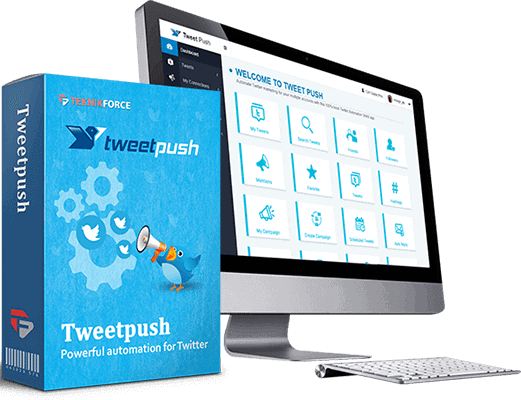
You’re probably aware of how competitive the job market can get. Standing out isn’t just about having experience; it’s all about showcasing the right skills. And, guess what? Online courses have been making it easier for those wanting to climb the professional ladder, and even the freedom of becoming self employed.
Let’s get started.
1. Pinpoint Your Objectives.
Sure, online courses offer flexibility and convenience, but there’s more to it. Employers today value continuous learning and adaptability—qualities that online courses can help you demonstrate.
The outcomes from online learning are the same as doing night classes at a colleges, you’re adding new tools to your professional toolkit. You’ll find courses designed to upgrade existing skills or teach new ones completely from scratch. Industries evolve, and staying on top of current trends can make you an invaluable asset to your current or future employers.
Choosing an online course can be a little overwhelming, but here’s my spin on it: Start with your end goal in mind.
Are you gunning for a promotion, aiming to break into a new industry, want to become self employed, or just wanting to refine your expertise?
Pinpoint courses that are relevant to your objectives. Don’t just take my word for it—there are countless success stories of individuals who’ve soared in their careers thanks to the strategic use of online learning.

Some worry about managing online courses while working full time. Trust me, it’s very doable, and a darn site easier than rushing from work to night classes.
Many online courses are self-paced, allowing you to learn without sacrificing your job. The secret is finding a balance and creating a schedule that doesn’t lead to burnout. Remember, your development journey doesn’t need to be a race.
In saying that, you can generally progress more quickly by doing an online course than taking the old classroom style of learning.
2. Maximizing Online Course Success for Professional Development
If you want to reap the full benefits of online education for your career growth, you need a rock-solid game plan. Let’s take a look at setting up a strategic study plan that aligns with your professional goals.
It should be a roadmap that not only covers what you need to learn but also outlines a realistic schedule for achieving those milestones.
The majority of reputable courses will have a game plan you can use or modify, others (particularly in tech), will help you set up a roadmap.
The reason of course, is because online courses are available across different time zones, particularly those with instructor led learning, businesses need to be able to align their instructors with times suitable to students.
3. Verifying the Quality and Credibility of Courses
This isn’t just about collecting courses; it’s about investing in education that adds tangible value to your career.
4. Why it matters:
- Relevance to your goals: Ensure the course aligns with your career aspirations and industry standards.
- Recognition: Choose accredited institutions and programs valued by employers and professional networks.
- Transferability: Will the skills or knowledge be recognized in your industry or field?
- Learning style: Ensure the course format (video, text, instructor-led interactive) aligns with your preferences.
- Return on investment: Make sure the quality justifies the cost and time commitment.
5. How to Verify a Course You are Interested in:
- Accreditation: Check for accreditation from recognized bodies relevant to the field. Look for government listings or accreditation council websites.
- Institution reputation: Research the institution’s history, faculty expertise, and student success rates. Read reviews and rankings on trusted platforms. Course Report, Trust Pilot, etc.
- Course content: Scrutinize the syllabus, learning outcomes, and instructor qualifications. Align them with your learning goals and industry expectations.
- Community insights: Seek opinions from alumni, industry professionals, or online forums specific to the course or institution.
By verifying quality and credibility, you are empowering yourself to make informed choices that propel your career forward.

6. Networking
Believe it or not, it has expanded, it is no longer restricted to in-person events. Online courses often come with forums and community groups that serve as goldmines for connecting with like-minded professionals.
So, let’s see how to make the most of these networks and build lasting professional relationships.
7. Branding Yourself with New Skills:
It’s not only about having them, it’s about showcasing them. I’ll show you how to strategically place your certifications on your resume and LinkedIn to make employers sit up and take notice.
8. How to Make your Certifications Shine on your Resume and LinkedIn:
First things first:
- Relevance: Only list certifications directly related to the job you’re targeting. Employers value focused expertise.
- Placement: On your resume, create a dedicated “Certifications” section near the top, after your summary or skills. On LinkedIn, add them to your “Licenses & Certifications” section.
- Prioritize: List the most relevant certifications first, mirroring the job description’s language if possible.
- Dates & Details: Include the issuing organization, date earned, and expiration date (if applicable).
- Actionable Impact: Go beyond mere listing. Add a sentence for each certification highlighting how you’ve applied it for tangible results. This showcases impact and initiative.

9. Bonus tips:
- Keywords: Use relevant keywords from the job description throughout your certification descriptions. This helps Applicant Tracking Systems (ATS) notice you.
- Visual Appeal: On LinkedIn, add logos of the issuing organizations for credibility.
- Connect the Dots: Briefly mention your certifications in your experience section, linking them to relevant achievements. This reinforces their value.
By following these few simple steps, you’ll turn your certifications into powerful attention-grabbers, demonstrating your commitment to professional development and making employers stand up and take notice.
10. Let’s Look at ROI—Return on Investment.
Gauging the return on investment (ROI) for an online course can be tricky, as it depends on your individual goals and the course itself. Here is a framework to help you evaluate:
11. Define your goals: (sorry for repeating myself).
- Personal development: Improved skills, increased knowledge, career advancement? Quantify desired outcomes (e.g., higher salary, promotion).
- Professional development: Meeting job requirements, gaining certifications, staying relevant? Analyze potential career improvements (e.g., opening new job opportunities).
- Entrepreneurial goals: Launching a business, acquiring essential skills? Estimate potential revenue increase or cost savings.
12. Quantify costs:
- Course fees: Include any subscriptions, materials, or assessments.
- Time investment: Estimate hours needed for coursework and consider opportunity cost (lost earnings or other activities).
13. Evaluate potential benefits:
- Monetary benefits: Estimate increased earning potential, cost savings, or business revenue based on your goals.
- Intangible benefits: Career advancement, improved job satisfaction, personal growth (quantify if possible, e.g., time saved due to new skills).
14. Calculate ROI:
- Simple ROI: (Benefit increase – Cost)/Cost x 100%
- Advanced ROI: Consider timeframes, risk factors, and long-term impact for a more nuanced picture.
ROI isn’t all about money. Consider the gains in your personal and professional development. How the course aligns with your overall goals, and by carefully evaluating both costs and potential benefits, you can make a well informed decision about whether or not an online course is a worthwhile investment for you.
Popular Course Reviews.
International Association of Professionals.
Overcoming Stagnation: Mindvalley
Everyone’s favourite. Udemy.









